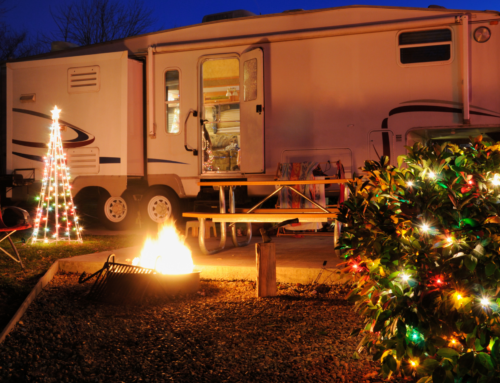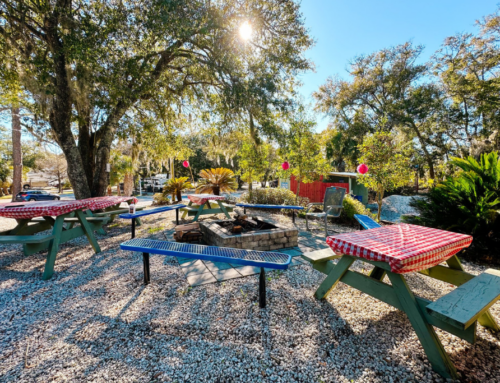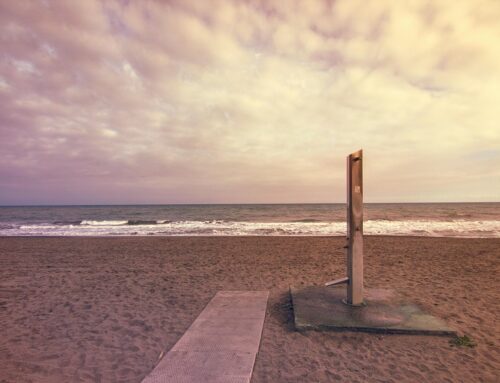GoCampingAmerica.com | Posted August
2nd, 2016
7 Monumental Places to
Visit
Happy Camper Blog
In 1906, the
U.S. Congress passed the Antiquities Act which gave the President of the
United States the power to protect “historic landmarks, historic and
prehistoric structures and other objects of historic or scientific interest”
by designating them as national monuments. Since that time, 122 of these
national treasures have been named national monuments. Here is a sampling of
them.
Giant Sequoia National Monument |
Porterville, California
Known as “nature’s skyscrapers,” Giant Sequoias can measure over
250 feet tall, span 30 feet in diameter and live to be more than 3,000 years
old. Giant Sequoia National Monument is home to 33 groves
of these magnificent trees and is divided into two sections that are
separated by Sequoia and Kings Canyon National Parks. The monument also
includes mountain meadows, limestone caverns, granite domes and spires,
plunging gorges, archaeological sites and a diverse array of plants and
wildlife.
Montezuma Castle National Monument |
Camp Verde, Arizona
You’ve probably never seen a high-rise apartment that looked quite
like this. The 20-room Montezuma
Castle, which overlooks Beaver Creek, is one of the best-preserved
cliff dwellings in North America. It is estimated that it was built by the
Sinagua Indian people between the years 1100 and 1425 AD. A museum located
onsite includes exhibits and artifacts depicting the lifestyle, history and
culture of the ancient people who built Montezuma Castle and lived in this
riparian oasis for over 400 years.
Bandelier National Monument | Los
Alamos, New Mexico
This national monument was designated to protect over 33,000 acres
of ruggedly beautiful canyon lands and mesas. It also includes petroglyphs
and dwellings created by Ancestral Pueblo (Anasazi) people whose history in
the area dates back over 10,000 years. Bandelier National
Monument hosts annual events such as the Opera On The Rocks concert
which will take place on September 24th this year, and
the Fall Fiesta on October 8th which will feature arts
and crafts, raptor demonstrations and Pueblo dancers.
Canyons of the Ancients National
Monument | Dolores, Colorado
Located in southwestern Colorado, Canyons of the Ancients National Monument
contains more than 6,000 archaeological sites representing Ancestral Puebloan
(Anasazi) and other Native American cultures. Most of the Monument is open
for exploration on foot, and park management recommends that visitors stop
first at the Anasazi Heritage Center to learn more about the Monument and the
Anasazi and other Native cultures of the Four Corners region and to view the
Center’s special exhibits.
Castillo de San Marcos National Monument
| St. Augustine, Florida
The Castillo de San Marcos, built in the
17th century, is the oldest masonry fortress in the
U.S. It is a prime example of what is known as the “bastion system” of
fortification, a star-shaped design that originated in Italy in the
15th century. It is one of only two fortifications in
the world built out of a form of limestone known as
coquina that is made of ancient shells. Although this
type of limestone is soft and porous, the walls of the fortress are so thick
that cannon balls fired at them would simply get embedded rather than making
their way through.
Fort McHenry National Monument |
Baltimore, Maryland
This is the very fort that inspired Francis Scott Key to write our
national anthem, the immortal “Star-Spangled Banner.” The
Monument includes a Visitor Center with an educational video and
exhibits, and, weather permitting, visitors can participate in one of the
flag change programs that are presented twice a day when a ranger
raises/lowers a reproduction of the Star-Spangled Banner
flag.
George Washington Birthplace National
Monument | Colonial Beach, Virginia
While many people naturally think of Mount Vernon as being George
Washington’s home, this location in the heart of the Northern Neck of
Virginia is where he was born and lived until he was three-and-a-half years
old. The original home burned down in 1779, but a
memorial house was built on the site in 1930 and the Monument
offers a glimpse into what plantation life was like in the 18th
century. Tours of the home and grounds are offered, and the colonial garden
next to the home contains plants, herbs and flowers that would have been used
in Washington’s time.





